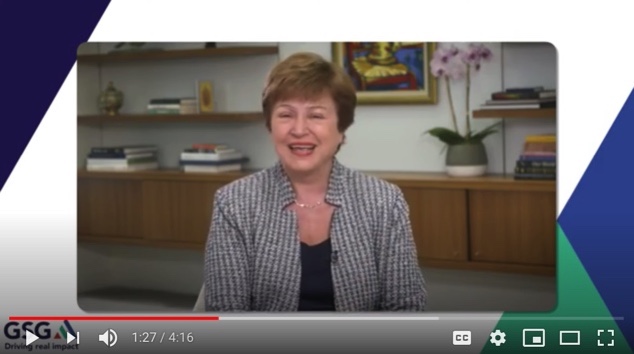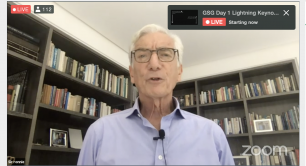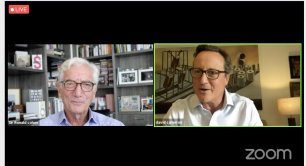IMF boss says impact investing can 'shape post-Covid world'
Impact investing can “help us emerge from Covid into a more beautiful world”, says the boss of the International Monetary Fund.
Kristalina Georgieva, managing director of the IMF, said the global economy was “undergoing a massive transformation”.
She told the GSG Summit last week that, since the start of the Covid-19 crisis, “what we have done is to cocoon ourselves”. Inside that cocoon, she said, “a fundamental change is taking place of our society, of our economy” – but this meant that governments and investors would also need to change.
Quoting the poet Maya Angelou, she said: “We delight in the beauty of the butterfly, but rarely admit the changes it has gone through to achieve that beauty.”
We delight in the beauty of the butterfly, but rarely admit the changes it has gone through to achieve that beauty – Maya Angelou.
Georgieva said that investors and governments must identify “the viable businesses of tomorrow” that should be supported. They must also carefully consider how they could support workers in businesses that were no longer viable to “make a transition to jobs in sectors that are due to expand”.
Above all, she said, governments and investors must ensure they were focused on building a resilient, sustainable future that could “deal with the shocks of a changing climate already imposed upon us”.
Luckily, a “job rich recovery” and fighting climate change supported each other because many jobs of the future would be in the green economy.

Georgieva said the IMF – which represents promotes international financial stability and is governed by and accountable to 189 member countries – recognised the importance of sustainable finance and impact investment to shape a post-Covid world.
She cited the IMF’s Global Financial Stability Report, one of its most widely read publications, which last year included a chapter on sustainable finance.
She added that both the financial sector and governments must act to “price in” sustainability into their plans. For this, we relied on “impact data” to drive progress.
She concluded: “Action is what the world needs right now. The actions we take now, this year, next year, will determine what kind of world emerges.”




